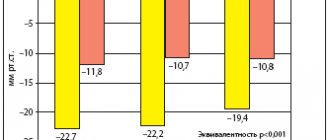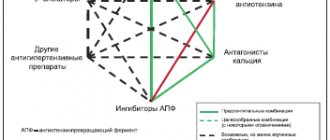Vomiting is a reflex eruption of the contents of the stomach and sometimes the duodenum through the mouth.
The gag reflex is quite complex - it involves various muscle groups. It is controlled by the vomiting center located in the brain stem. By its nature, vomiting is a mechanism by which the body protects itself from poisoning. Normally, vomiting is a reaction to toxic substances entering the gastrointestinal tract or simply something that cannot be digested - for example, too fatty foods. Therefore, after an attack of vomiting, a person often feels relief: the body has been cleansed.
However, the intoxication that caused vomiting may have an internal source, that is, be a consequence of some pathology or disease. It is also possible that the irritation of the nervous system leading to vomiting is not related to the condition of the stomach at all. This makes us perceive vomiting as a very serious, and even ominous, symptom. An attack of vomiting is almost always a sufficient reason to consult a doctor. In case of repeated attacks, you should definitely consult a doctor!
Causes of vomiting
In most cases, vomiting is caused by irritation of the stomach receptors or, in medical terms, has a visceral
origin. The cause is most often acute or chronic diseases of the stomach itself (acute food poisoning, gastritis, stomach ulcers, food allergies). Also, stomach receptors can react to diseases of other organs - the gallbladder, uterus, heart (vomiting is part of the complex of possible symptoms of myocardial infarction).
Vomiting may also be central
origin, that is, caused by pathologies of the central nervous system (brain), such as meningitis, encephalitis, trauma and brain tumors. Vomiting is quite common during migraines. Inner ear problems can also lead to vomiting (in this case, vomiting may occur along with dizziness). If the receptors of the inner ear are excessively irritated (with motion sickness), even a healthy person can vomit, especially if the vestibular apparatus is not trained. Sometimes vomiting is caused by emotional distress (stress) or is a reaction to something that causes extreme disgust (conditioned vomiting).
Irritation of the vomiting center can be caused by toxic substances carried by the bloodstream ( hematogenous-toxic
vomit). Toxic substances can enter the body from the outside (for example, chlorine or carbon monoxide through inhalation), or they can be produced in the body itself as a result of impaired liver or kidney function.
Symptoms of hypertensive crisis
- A sharp increase in blood pressure to 220/120 mm Hg. Art. and higher.
- Headache, dizziness, tinnitus, black spots flashing before the eyes.
- Dyspnea.
- Nausea, vomiting.
- Chest pain.
- Neurological disorders (convulsions, impaired consciousness, paralysis).
A hypertensive crisis may be accompanied by a feeling of fear, trembling, chills, redness of the facial skin, swelling of the face, and blurred vision. Particular danger of hypertensive crisis
Represents for patients suffering from any diseases of the brain and heart.
Vomiting and other symptoms
Vomiting is usually preceded by nausea, because, in essence, vomiting is the resolution of nausea, its logical conclusion. The fact that nausea turned into vomiting indicates the severity of the pathological process. Vomiting spasms can be observed against a background of elevated temperature, accompanied by diarrhea. In addition to food debris, gastric juice and mucus, vomit may contain bile, blood, and pus.
Repeated, periodically recurring and indomitable vomiting exhausts and dehydrates the body, leading to disruption of mineral metabolism and acid-base balance.
- Diarrhea and vomiting
Vomiting and fever
Condition Characteristics
From the moment the virus enters the body until the clinical symptoms of enteric coronavirus appear, 2 to 5 days pass. This condition does not occur in an asymptomatic form. Unlike the respiratory form, after a person has had an intestinal form of coronavirus, their body develops unstable immunity. The clinical picture of this condition is largely reminiscent of gastroenteritis.
In patients with chronic diseases of the gastrointestinal tract, the clinical symptoms of intestinal coronavirus are more pronounced.
Causes
Diarrhea due to coronavirus infection can be either primary or secondary. The primary variant of the disease develops from the direct effect of the virus on the body. When the virus is transmitted by the fecal-oral route, in the intestinal lumen the pathogenic microorganism attaches to the epithelial cells of the organ mucosa and provokes the development of the inflammatory process.
The secondary variant of the intestinal form of coronavirus is a complication that occurs after complex treatment of Covid-19. In 90% of cases, complex therapy for this infectious disease includes taking antibiotics, as this helps prevent the addition of a secondary bacterial infection. Antibiotics, in turn, have a detrimental effect not only on pathogens, but also on beneficial intestinal microflora. A person is faced with a phenomenon called dysbiosis.
When vomiting is scary
Any attack of vomiting is a very unpleasant experience. Even if a person experiences relief with the resolution of the attack, the vomiting itself is perceived as an extraordinary event, which should not normally occur. Shock to the body, everyday and social inconveniences - all this makes vomiting a process of a different order compared to other reflex actions, such as coughing or sneezing. We always react sharply to vomiting (we don’t ignore it), and rightly so.
However, in some cases, vomiting worries us especially strongly. This is vomiting bile , vomiting blood . Parents are concerned about cases of vomiting in children . Quite often, vomiting is observed during pregnancy , attracting increased attention.
These cases are worth mentioning separately:
- Vomiting bile
Vomiting blood
Vomiting during pregnancy
Vomiting in a child
Diagnostics
Patient examination
- Assessing the degree of dehydration.
- Determination of symptoms of acute surgical pathology.
- Neurological status, assessment of clarity of consciousness.
Recommended tests
- Blood tests (general, biochemistry, thyroid hormones, sugar levels).
- General urine test and pregnancy test.
- Stool analysis (coprogram, worm eggs, culture).
Recommended Research
- Ultrasound of the abdominal cavity and endoscopy.
- X-ray and colonoscopy.
- CT/MRI of the intestine, brain.
What to do if you are vomiting
Since anyone can have an attack of vomiting, it is useful to know how you can prevent vomiting, what to do during and immediately after an attack, and when you should definitely consult a doctor.
Nausea is a precursor to vomiting. If you feel nauseous, try opening a window (increase oxygen flow), drinking some sweetened liquid (this will calm your stomach), or sitting or lying down (physical activity increases nausea and vomiting). You can dissolve a validol tablet. If you get motion sickness on the road, take some lollipops with you and suck them on the way. This will help prevent vomiting.
What to do during an attack of vomiting
During an attack, it is important to prevent vomit from entering the respiratory tract. The patient should never lie on his back while vomiting. Do not leave small children unattended if they may be vomiting. An elderly or weakened person needs to be helped to turn on his side, with his head towards the edge of the bed, and a pelvis placed in front of him.
What to do after a bout of vomiting
After an attack, you should rinse your mouth with cold water. If the patient cannot do this himself, you need to moisten a piece of gauze in a soda solution and wipe his mouth.
Immediately after an attack, you can drink only a few sips of water, and only if there is no blood in the vomit. You can drink properly only after 2 hours, and eat only 6-8 hours after the attack. Food should be dietary and gentle; the best thing is porridge with water, rice, low-fat soup.
With repeated bouts of vomiting, dehydration may occur. Therefore, it is necessary to drink a special solution that restores water-electrolyte and acid-base balance.
Treatment
Therapeutic tactics depend on the causative disease, the presence of accompanying symptoms of nausea/vomiting and the general condition of the patient.
- Treat dehydration and electrolyte imbalance with oral medications or IV infusions.
- Antiemetics. In severe cases, the use of 5-HT3 receptor antagonists and corticosteroids is acceptable.
- Causative therapy aimed at eliminating the causative disease.
Self-administration of various tablets for nausea/vomiting is not recommended. Only a doctor, after conducting the necessary research, will determine the cause of poor health and prescribe effective and safe treatment.
When should you see a doctor if you are vomiting?
Vomit
- in many cases, a sign that the body is experiencing serious problems and needs cleansing, and therefore, most likely, treatment. If the disease is accompanied by vomiting, this usually indicates that the disease is quite severe.
If the attack of vomiting was a one-time occurrence and there is reason to believe that it was caused by overeating, motion sickness, alcohol poisoning or stress, there is no direct need to consult a doctor. In all other cases, consultation with a doctor is necessary. Especially if attacks are repeated for two days or more, as well as in the presence of diabetes mellitus or other chronic diseases.
Sometimes vomiting requires emergency treatment. You should call an ambulance if:
- vomiting is accompanied by constant or severe abdominal pain;
- there are repeated bouts of vomiting after a head injury;
- along with vomiting, dehydration, dry mouth, and increased urination are observed;
- with deterioration of mental and functional activity in older people;
- there is blood in the vomit (for example, impurities in the form of “coffee grounds”).
Forms of hypertensive crisis
Cerebral angiohypotonic crisis with clinical manifestations of hypertensive encephalopathy
The most common form of hypertensive crisis. The reason is an excessive increase in cerebral blood flow and relaxation of cerebral vessels. The patient feels a pressing headache, a feeling of fear, dizziness, lethargy. Blood pressure may rise to 170/110 mmHg. This type of hypertensive crisis
often accompanied by vomiting.
Cerebral ischemic crisis
Less common form, but most dangerous. Blood pressure reaches higher numbers - 220/120 mmHg. The patient experiences general symptoms of cerebrovascular disease - dizziness, headache, neurological disorders - numbness of the face or limbs, impaired coordination of movements, short-term blindness or muteness. Cerebral ischemic crisis is a prerequisite for the development of cerebral stroke.
Hypertensive cardiac crisis
A hypertensive cardiac crisis by high blood pressure numbers. The patient experiences shortness of breath, chest pain, rapid heartbeat, and complains of a dry cough. Hypertensive cardiac crisis can cause myocardial infarction.
The danger of intestinal coronavirus
This condition is dangerous not only because an inflammatory reaction develops, but also because during vomiting and diarrhea, the human body loses a large amount of fluid, which can result in dehydration (dehydration). Elderly people with additional chronic diseases are at particular risk. For them, this condition poses a threat not only to health, but also to life.
Diagnostics
By analogy with the respiratory form of coronavirus, diagnosis of the intestinal form of the disease is carried out using a laboratory PCR test. The nature of the patient's complaints is taken into account.








